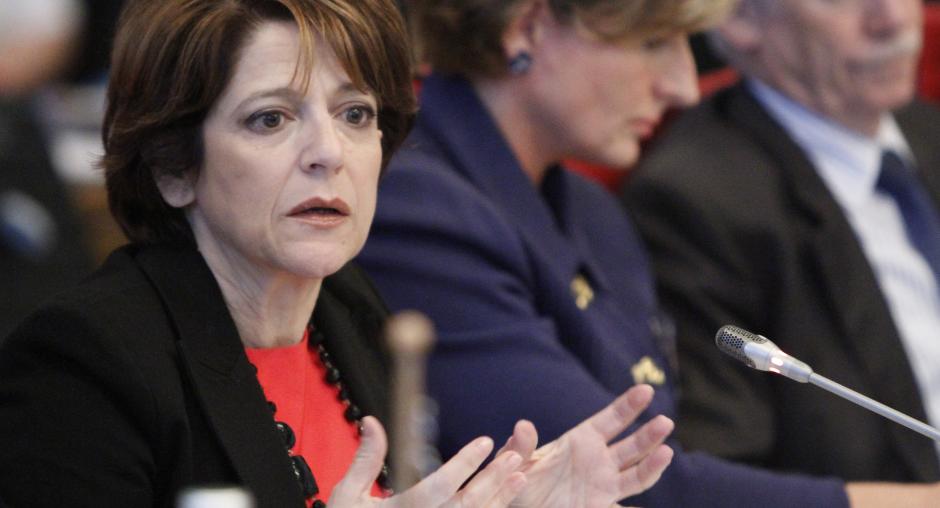More protections needed for domestic workers' rights, OSCE Special Representative says in Cork

The OSCE Special Representative and Co-ordinator for Combating Trafficking in Human Beings, Maria Grazia Giammarinaro, said that much of the domestic work sector remains hidden in the shadows of the global economy and more must be done to protect the rights of its overwhelmingly female labour force.
“As a fact domestic workers are often not counted, they are not considered real workers, they do not appear in national employment statistics, they mostly work in the informal economy, responding to the ever-increasing global demand for household work and care because fewer families in both the rich and the poor world can rely on one single breadwinner,” Giammarinaro said at an address during a conference on domestic work at Ireland’s University College Cork on 19 October 2012.
Giammarinaro underlined that under-regulation leaves domestic workers at the mercy of unscrupulous employers who can oblige them to be at the complete disposal of the family without rest or holidays; when this happens, domestic workers – mostly migrant women and girls – may not receive a salary and can even be deprived of appropriate sleep and food. “This is not domestic work, this is slavery,” Giammarinaro said.
Although migrant domestic workers have long been a mainstay of the global economy, the first international instrument specifically addressing the sector, International Labour Organization (ILO) Convention 189 on Decent Work for Domestic Workers, was only adopted last year. The Convention has now been ratified by three countries, allowing the first global standard for domestic workers to come into force in a year’s time.
Giammarinaro also discussed the issue of trafficking for domestic servitude in diplomatic households, which implies an abuse of diplomatic immunities, and often leaves victims without any legal recourse to claim the back-payment of their wages and compensation.
The Special Representative has undertaken a series of initiatives to prevent this form of exploitation, including a 2010 conference on the issue, followed by the 2011 publication, Unprotected Work, Invisible Exploitation: Trafficking for the Purpose of Domestic Servitude. In 2012, the Office launched a series of five workshops targeting Protocol Departments within the foreign ministries of OSCE participating States, to discuss good practices to step up the protection of domestic workers employed by people enjoying diplomatic immunities.
The Cork conference was opened by Kathleen Lynch TD, Irish Minister of State, Department of Health and Department of Justice, Equality & Defence with responsibility for Disability, Older People, Equality & Mental Health.
